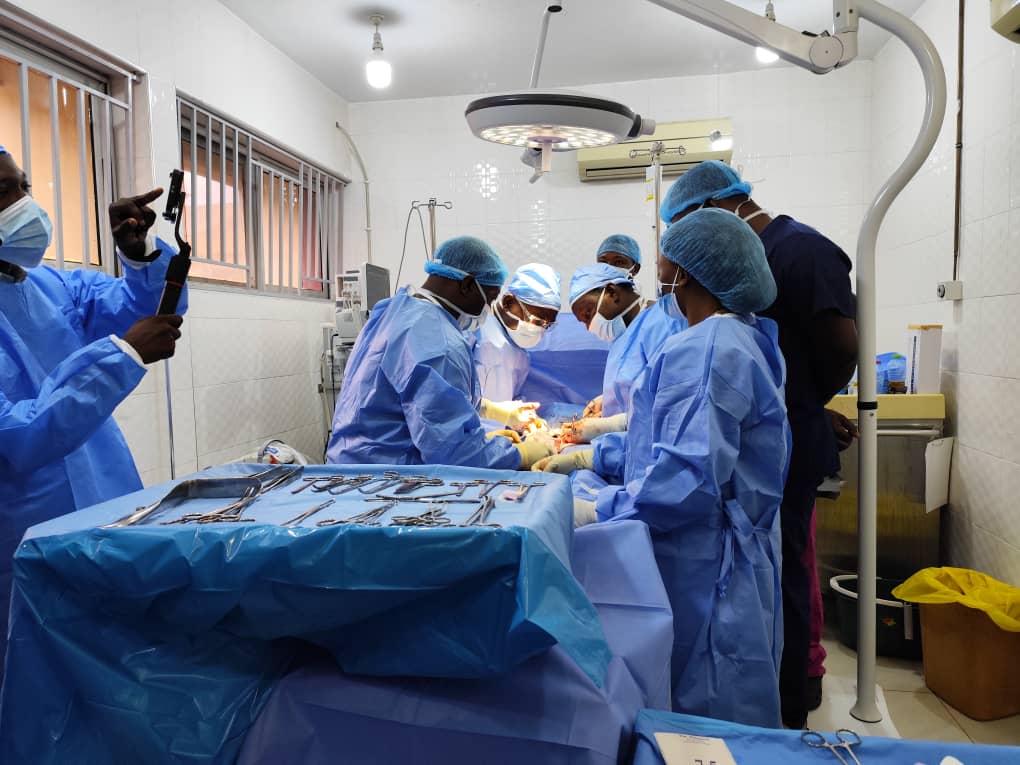By Naa Shormei Odonkor
Kumasi, May 26, GNA – The Komfo Anokye Teaching Hospital KATH) has opened its doors to women suffering from obstetric fistula to undergo free surgery to repair damages to their bladder or rectum caused by obstructed labour.
The free surgical procedure and recovery was funded by the United Nations Population Fund (UNFPA) in partnership with other organisations under the Partnership to Eliminate Fistula in Ghana (PEFIG).
Dr Akwesi Baafuor Opoku, a Fistula Surgeon at the KATH, explained that Obstetric Fistula is an abnormal hole created in the birth canal which causes leakages of urine or stools through the vagina.
He was addressing the media at KATH when representatives from PEFIG visited the facility to commemorate the World Obstetric Fistula Day.
Dr Opoku noted that women with this condition often lost control over their bladder and bowels, resulting in a strong, unpleasant odour due to the involuntary release of urine or stool.
According to him, research showed that about 200,000 women in Ghana were living with the condition, however, most of them remained in hiding due to fear of public ridicule and stigmatisation.
Dr Opoku said when the condition was left unrepaired for a long time, women could develop other health conditions such as urine dermatitis, nerve damages to the lower limp, anxiety, and depression, among others.
He noted that 90 per cent of women with Obstetric Fistula lose their children during childbirth and this was one of the significant issues associated with the condition.
Currently, Dr Opoku said, 12 women with the condition had been prepared to undergo surgery at the KATH to restore their hope to live a normal life as before.
Ms Dela Bright Gle, Programme Specialist, Reproductive Health of the UNFPA, said each Obstetric Fistula case costed USD700 to repair.
The repair, she noted, included nutrition, transportation of the clients, cost of surgery and a little money for the clients to go home with after the surgery.
As part of the activities to commemorate the World Obstetric Fistula Day, Ms Gle said 50 women with the condition had been targeted by PEFIG to undergo surgery at four hospitals in four regions in Ghana by the end of the week.
The hospitals include KATH in the Ashanti Region, Ho Teaching Hospital in the Volta Region, Tamale West Hospital in the Northern Region and the Mercy Women’s Catholic Hospital in the Central Region.
Ms Vida Opoku, a 32-year-old trader who lived with the condition for eight months expressed immense joy for being part of the women to undergo free surgery at KATH.
She noted that the condition caused her to fear societal ridicule and stigmatisation, leading her to isolate herself from public places.
“For the past eight months, I have not been going out to work because of my condition. I feared that the pampers I wore might leak while I was in town,” she said.
Ms Opoku thanked PEFIG and the KATH for the intervention and urged other women with the condition to come out from hiding to stand the chance of getting treatment.
GNA
Edited by YI/Kenneth Odeng Adade
